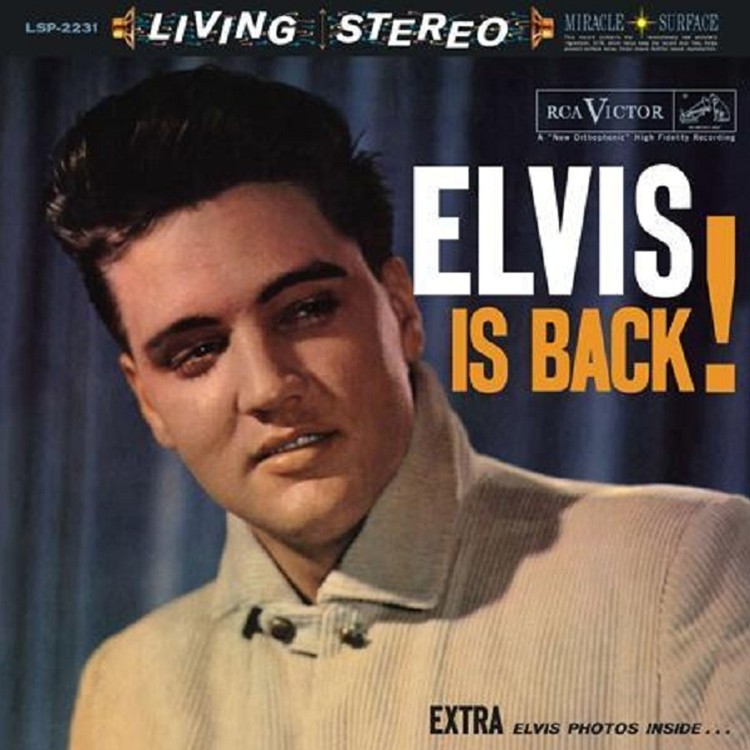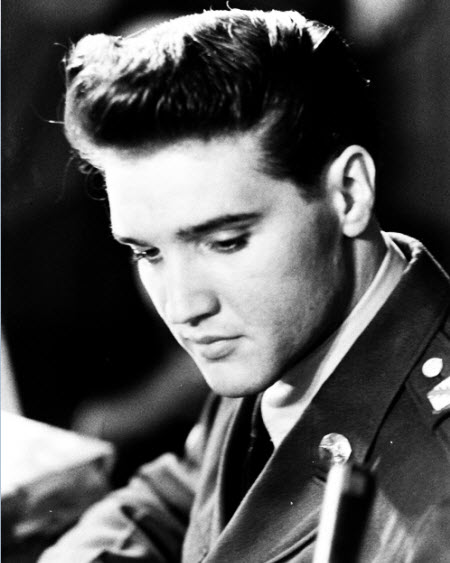Recorded when Presley was 25, fresh off a two-year military stint and musically fit to burst, Elvis Is Back! might be the King’s greatest noncompilation LP: wildly varied material, revelatory singing, impeccable stereo sound.
~Will Hermes (rollingstone.com)
Elvis Is Back represents a peak in Elvis’ career, when his maturity and confidence led to a control and focus in his music. Like the pre-army Elvis recordings, this album offered an eclectic collection of musical genres, from a sentimental duet with Charlie Hodge called ‘I Will Be Home Again’ to the gritty ‘Reconsider Baby’ with a bluesy sax solo by Boots Randolph. Once again, Elvis’ talent for unifying disparate styles of music resulted in an innovative and successful album..
~ elvispresleymusic.com
Elvis Is Back! is the fifth studio album by Elvis Presley, released on RCA Victor Records in mono and stereo, LPM/LSP 2231, in April 1960. Recording sessions took place on March 20 and April 3, 1960, at RCA Studio B in Nashville, Tennessee. It was Presley’s first album to be released in true stereo. It peaked at number two on the Top Pop Albums chart and is listed, along with his debut and From Elvis in Memphis, in the book 1001 Albums You Must Hear Before You Die. It was certified Gold on July 15, 1999, by the RIAA. Reconsider baby ( extended sax version): The first album by Presley after his military discharge from the army, the first day of its sessions were attended by the Colonel, his assistant Tom Diskin, and representatives from RCA in a show of interest regarding whether or not Elvis still “had it” after two years in uniform. His long-serving guitarist Scotty Moore, pianist Floyd Cramer, and drummer D. J. Fontana had returned, along with his back-up vocal quartet The Jordanaires, but the other musicians had only played on one previous session with Elvis. … Pressure aside, the sessions were successful, the album a highlight of the entire decade and a declared favorite by Presley regarding his own work. He moved beyond his standard rock and roll sound of the 1950s, combining doo-wop, gospel, blues, and even jazzy tones from his version of “Fever” following so close to that of Peggy Lee from 1958. Personnel:
Track listing – original albumSide one
Side two
Album playlist from youtube: Wikipedia |
Playlist of the day:

